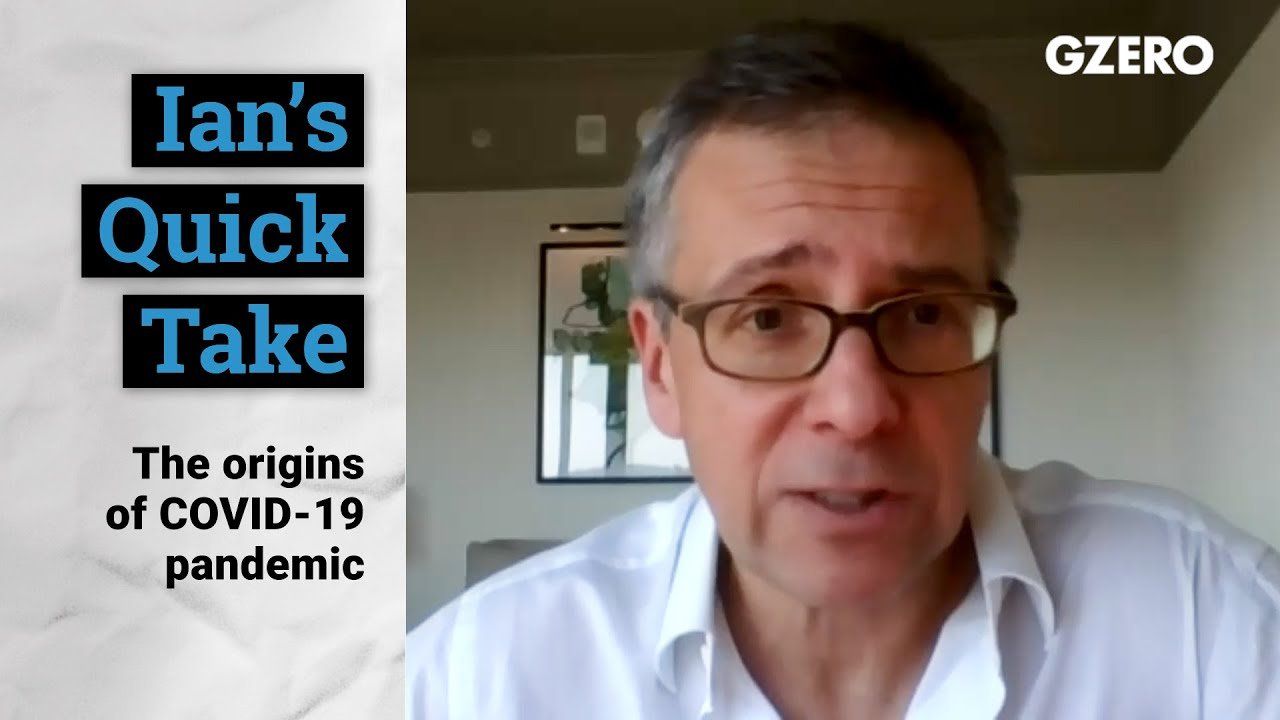Quick Take
China-US tensions over COVID origins & Russia's war

China & the origins of COVID-19 | Quick Take | GZERO Media

But a couple of points here. First, this lab-leak concept was one that would get you banned on social media if you came out with it a year ago. And it just goes to show how you can have a dominant narrative that gets picked up politically and suddenly no one's allowed to ask questions anymore. That doesn't make it a conspiracy theory, it means that people are still trying to understand where it is, what's going on. There was so much that was uncertain about this disease in the early days. One of the things that annoyed me about Fauci, who I've interviewed a couple of times myself, gotten to know him a bit, is the fact that he came out feeling like he was so certain in some of his early communications, on things that he obviously wasn't certain about, and ended up undermining and de-legitimizing science and the medical community in the US in a way that we really cannot afford to do so.
Saying you don't know something is okay. I mean, back last May, I published the fact that I had no idea if it came from a lab or if it came from a wet market. What was clear to me is that it was getting politicized. What was clear from the scientific community is that the disease had not been bioengineered, that it was an accident that it came out. What was also clear is the Chinese lied to their own citizens and internationally, about the virus's origins, when they knew that there was human-human transmission. They lied to the WHO, the World Health Organization, and as a consequence, it was much worse for everyone. And they're still not allowing the WHO or others to investigate appropriately the origins. The fact that the country that the virus came from is not willing to be transparent with the global scientific community. I mean, thankfully there were a bunch of doctors and scientists in China that had humanity and said, "We got to get this out no matter what." Or it would've been even worse.
But it's an enormous problem when politics intervenes in what needs to be just a follow-the-science situation. And that's true on climate, it's true on the pandemic, it's true in so many areas of the world. And in that regard, we haven't changed much at all from today through the beginnings of the pandemic. This, of course, is going to make the Americans feel tougher about relations with China. That is also true on the back of China embracing, welcoming Belarus President/Dictator, Alexander Lukashenko, completely illegitimate leader of that country, using all sorts of repression and force against his own domestic opposition. No free press of course. Again, not surprising for the Chinese at all, but one of Russia's key allies, this on the back of Wang Yi visiting Moscow, and what I expect, relatively soon, will be an announcement that Xi Jinping is going to Moscow. There is a greater comfort of these two countries working more closely together.
Does that mean that the Chinese will provide weapons directly for Russia? I don't think so. I think that's indeed why the Americans put the Chinese on notice. They had intelligence that the Chinese were considering sending drones over. The UK, the NATO Secretary General, also making those statements very strongly. The Europeans and the Americans would have a very different reaction if the Chinese decided to go ahead and put those weapons forward. Now diplomatically, what the Chinese have been saying to the Europeans behind closed doors is, "Look, you guys are providing all these weapons. You're escalating. We are showing restraint." Having said that, if you want to call BS on what the Chinese are saying, you say, "Look, a majority of the world's countries recognize, and have recognized for three straight General Assembly resolutions, that this is an illegal invasion that needs to be condemned and ended immediately. The Chinese have decided that they're going to be neutral and abstain. But most of the world's countries, even the Global South, do not agree with China on this.
That's important, because if the Chinese were to provide weapons to the country that actually invaded, illegally, against the will of the General Assembly, the Chinese are putting themselves in the position of supporting a rogue state. And that is not a position China wants to be in. Not a country that needs economic support and integration from all of the world, not just countries they dominate economically. So I believe that the Chinese may have been fooling around with the idea of providing some weapons to Russia, may have been floating that because they wanted more influence with their own 12-point peace deal. But I would be very surprised if they proceed in providing that support. That's a good thing, in the context of US-China news that right now have very few positive headlines that we're talking about.
So that's it for me. Hope everyone's well, I'll talk to you all real soon.
Global conflict was at a record high in 2025, will 2026 be more peaceful? Ian Bremmer talks with CNN’s Clarissa Ward and Comfort Ero of the International Crisis Group on the GZERO World Podcast.
Think you know what's going on around the world? Here's your chance to prove it.
Indian Prime Minister Narendra Modi isn’t necessarily known as the greatest friend of Muslim people, yet his own government is now seeking to build bridges with Afghanistan’s Islamist leaders, the Taliban.
The European Union just pulled off something that, a year ago, seemed politically impossible: it froze $247 billion in Russian central bank assets indefinitely, stripping the Kremlin of one of its most reliable pressure points.